
Elgin Street: Ottawa's Vibrant Cultural Corridor
Elgin Street, also known as Ottawa's cultural corridor, is a must-visit destination for tourists seeking a blend of history, culture, and vibrant city life. Located in the heart of Canada's capital, this lively street offers an eclectic mix of activities and attractions that cater to a wide range of interests. Stroll along Elgin Street to discover an array of charming boutiques, trendy cafes, and gourmet restaurants. The street is lined with beautiful heritage buildings that house unique shops and dining spots, making it a perfect place for both shopping enthusiasts and foodies. Whether you're in the mood for a casual brunch or an elegant dinner, Elgin Street has something to satisfy every palate. As you explore, you'll find several cultural landmarks, including the National Arts Centre, which hosts a variety of performances ranging from classical music to contemporary theater. History buffs will appreciate the nearby Canadian Museum of Nature, where fascinating exhibits provide insights into the country's natural heritage. The street is also a hub for nightlife, with numerous bars and pubs offering live music and entertainment well into the evening. Elgin Street's central location makes it an ideal starting point for exploring other parts of Ottawa. It's within walking distance to Parliament Hill, where you can witness the Changing of the Guard ceremony, and the Rideau Canal, a UNESCO World Heritage Site that transforms into the world's largest skating rink in winter. Whether you're visiting for a weekend or an extended stay, Elgin Street promises an unforgettable experience filled with charm and excitement.
Local tips in Elgin Street
- Visit the National Arts Centre for a diverse range of performances.
- Explore the Canadian Museum of Nature for a family-friendly educational experience.
- Take a leisurely stroll or skate along the Rideau Canal, especially in winter.
- Enjoy brunch at one of the trendy cafes on weekends for a true local experience.
- Check out the live music scene at the local bars and pubs for evening entertainment.
Elgin Street: Ottawa's Vibrant Cultural Corridor
Elgin Street, also known as Ottawa's cultural corridor, is a must-visit destination for tourists seeking a blend of history, culture, and vibrant city life. Located in the heart of Canada's capital, this lively street offers an eclectic mix of activities and attractions that cater to a wide range of interests. Stroll along Elgin Street to discover an array of charming boutiques, trendy cafes, and gourmet restaurants. The street is lined with beautiful heritage buildings that house unique shops and dining spots, making it a perfect place for both shopping enthusiasts and foodies. Whether you're in the mood for a casual brunch or an elegant dinner, Elgin Street has something to satisfy every palate. As you explore, you'll find several cultural landmarks, including the National Arts Centre, which hosts a variety of performances ranging from classical music to contemporary theater. History buffs will appreciate the nearby Canadian Museum of Nature, where fascinating exhibits provide insights into the country's natural heritage. The street is also a hub for nightlife, with numerous bars and pubs offering live music and entertainment well into the evening. Elgin Street's central location makes it an ideal starting point for exploring other parts of Ottawa. It's within walking distance to Parliament Hill, where you can witness the Changing of the Guard ceremony, and the Rideau Canal, a UNESCO World Heritage Site that transforms into the world's largest skating rink in winter. Whether you're visiting for a weekend or an extended stay, Elgin Street promises an unforgettable experience filled with charm and excitement.
Iconic landmarks you can’t miss
The National War Memorial
Visit The National War Memorial in Ottawa to honor the bravery of Canada's soldiers and explore a vital piece of Canadian history.
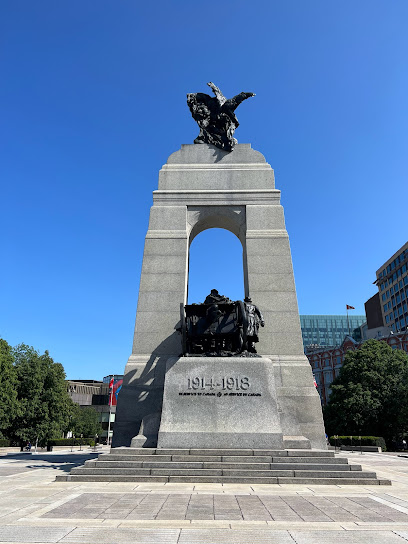
Tomb of the Unknown Soldier
Explore the Tomb of the Unknown Soldier in Ottawa, a powerful memorial honoring Canada’s fallen heroes and a key historical landmark in the heart of the capital.
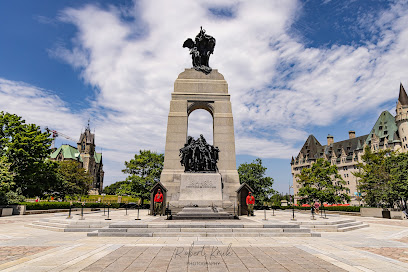
Famous Five Statue
Explore the Famous Five Statue in Ottawa, a powerful symbol of women's rights and a historical landmark celebrating the fight for equality in Canada.
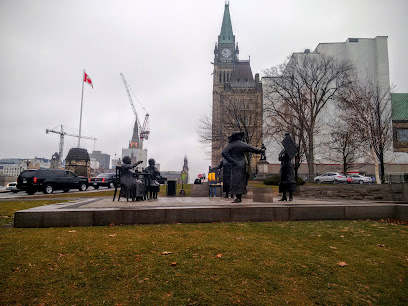
Canadian Tribute to Human Rights
Explore the Canadian Tribute to Human Rights, a powerful monument showcasing the struggles and victories in the fight for equality and justice in Canada.
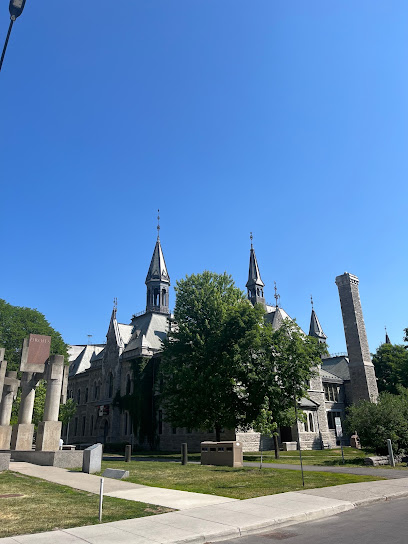
Confederation Square
Explore Canada's rich history and vibrant culture at Confederation Square, a must-visit landmark in the heart of Ottawa.
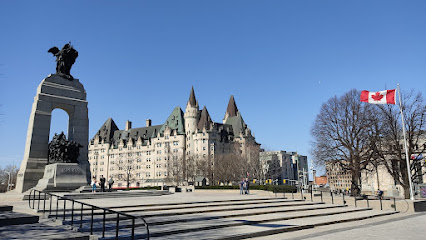
Valiants Memorial
Explore the Valiants Memorial in Ottawa: a heartfelt tribute to the bravery of Canadian soldiers through history, set in a serene and reflective environment.
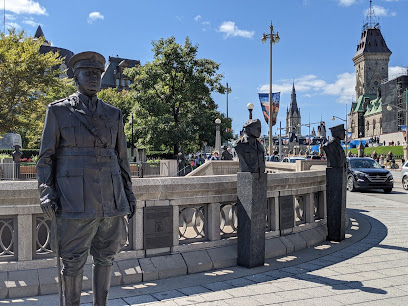
The Flags of Canada
A vibrant landmark in Ottawa showcasing Canada's national unity and the unique heritage of its provinces and territories.
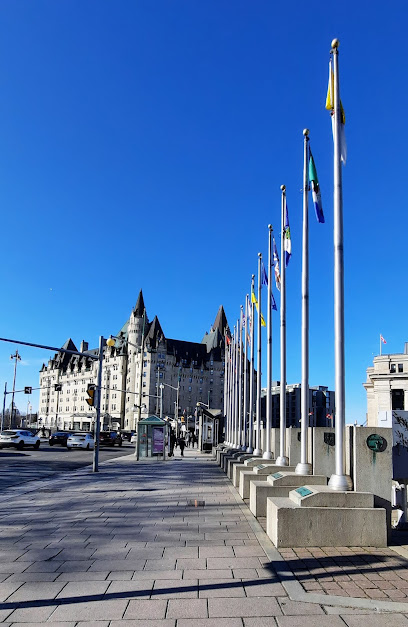
National Aboriginal Veterans Monument
Explore the National Aboriginal Veterans Monument in Ottawa, a powerful tribute to Indigenous military heritage and a stunning example of cultural artistry.
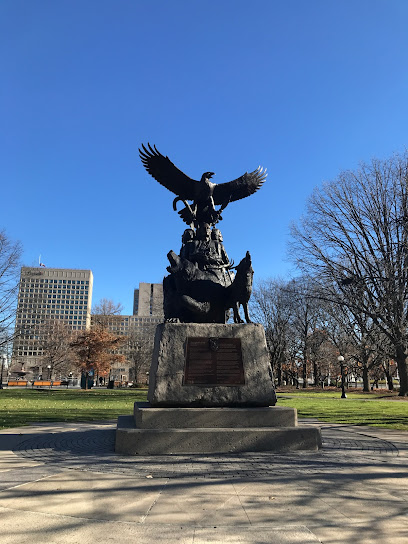
Lieutenant Colonel John By Fountain
Discover the beauty of the Lieutenant Colonel John By Fountain, a historic gem in Ottawa's Byward Market, perfect for relaxation and reflection.
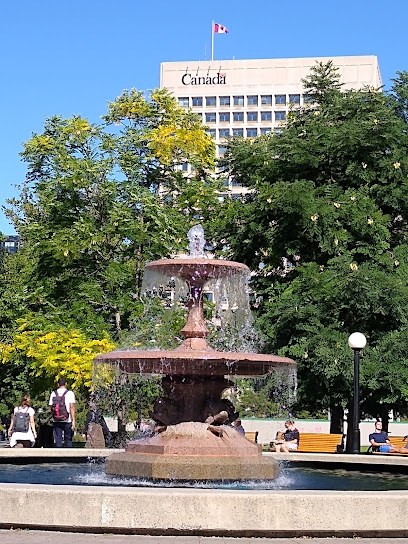
Central Chambers National Historic Site of Canada
Explore the Central Chambers National Historic Site in Ottawa, a vital piece of Canada's heritage showcasing stunning architecture and rich history.
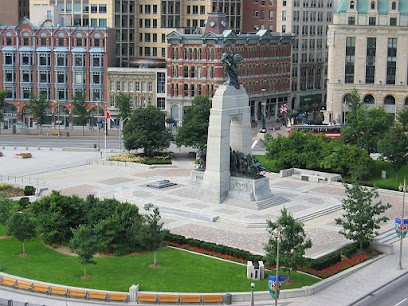
Unmissable attractions to see
Tomb of the Unknown Soldier
Explore the Tomb of the Unknown Soldier, a solemn tribute in Ottawa honoring the sacrifices of fallen soldiers, a must-visit historical landmark.
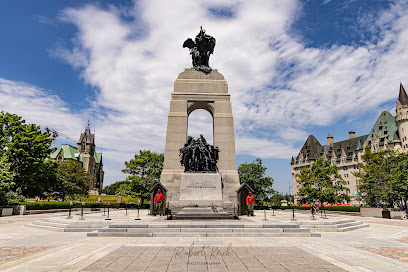
Canadian Tribute to Human Rights
Discover the Canadian Tribute to Human Rights, a historical landmark in Ottawa dedicated to the fight for justice, equality, and dignity for all.
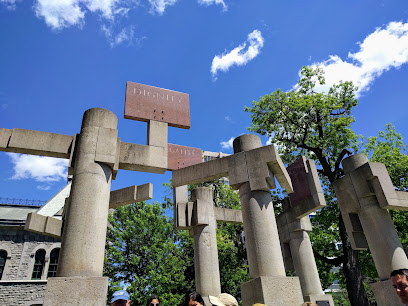
Essential places to dine
Johnny Farina
Experience authentic Italian cuisine at Johnny Farina in Ottawa – where every dish is crafted with passion and tradition.
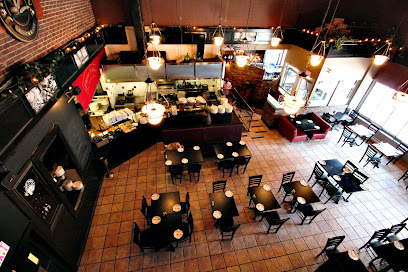
El Camino
Experience authentic Mexican flavors at El Camino - Ottawa's vibrant destination for delicious tacos and traditional dishes.
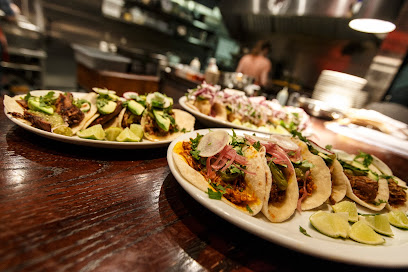
The Whalesbone Elgin Street
Experience exquisite seafood dining at The Whalesbone Elgin Street in Ottawa – where sustainability meets culinary excellence.
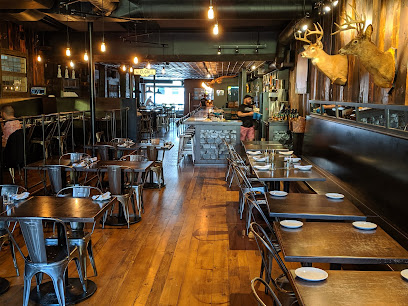
Al's Steakhouse
Experience Ottawa’s premier steakhouse with exquisite cuts and an elegant atmosphere at Al’s Steakhouse.
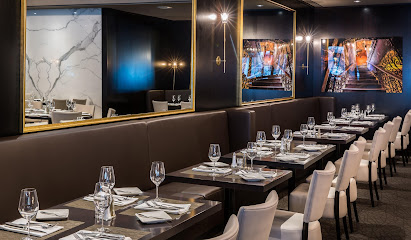
Sir John A Pub
Experience the lively spirit of Ottawa at Sir John A Pub—where delicious food meets local culture in a welcoming environment.
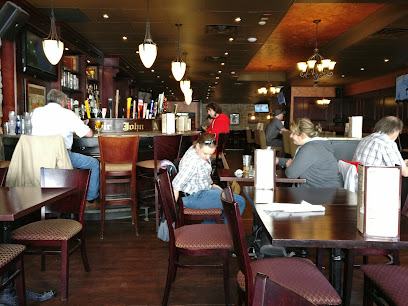
Town
Experience authentic Italian cuisine in Ottawa's Centretown, where every dish tells a story of tradition and flavor.
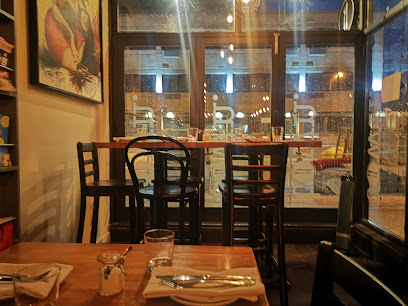
PI·RHO - Fresh Greek Grill - Elgin Street
Discover authentic Greek flavors at PI·RHO - Fresh Greek Grill in Ottawa's Centretown. A must-visit for Mediterranean food lovers!
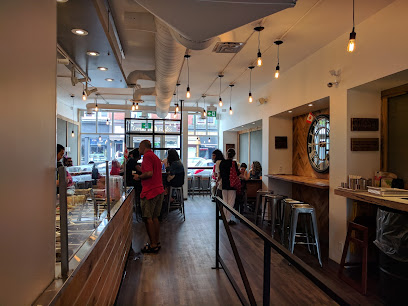
The Waverley Elgin
Discover The Waverley Elgin: Ottawa's beloved gastropub serving innovative dishes and craft drinks in a lively setting.
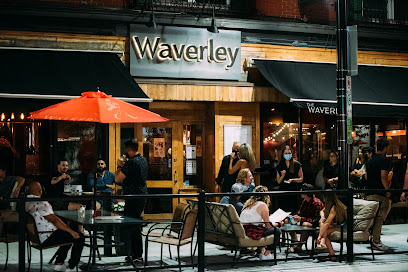
Giulia
Experience authentic Italian cuisine at Giulia in Centretown Ottawa - where every dish tells a story.
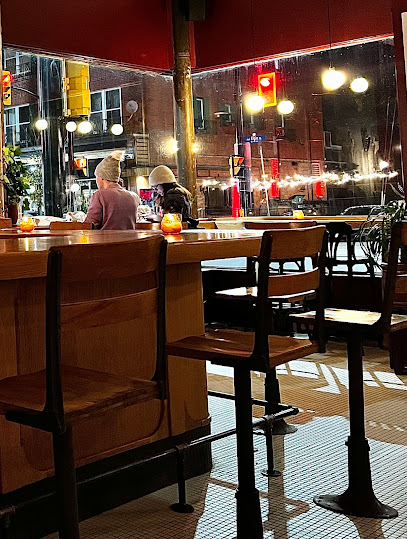
Gitanes
Experience authentic French cuisine at Gitanes in Ottawa's Golden Triangle - where every dish tells a story of culinary artistry.
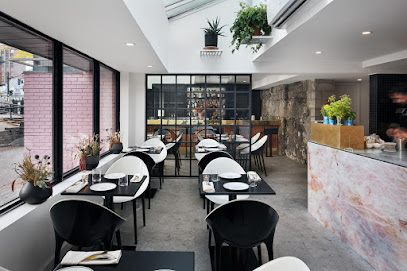
Markets, malls and hidden boutiques
Perfect Books
Discover the charm of Perfect Books, a cozy book store in Ottawa offering a vast selection of new and used titles in a welcoming atmosphere.
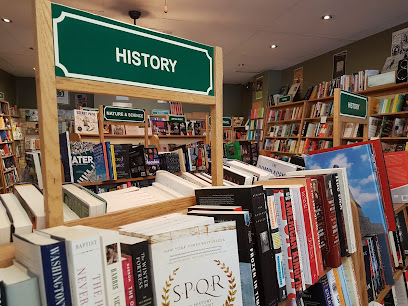
The Gifted Type
Explore The Gifted Type in Ottawa: a unique gift shop featuring eclectic gifts, greeting cards, and locally sourced treasures for every occasion.
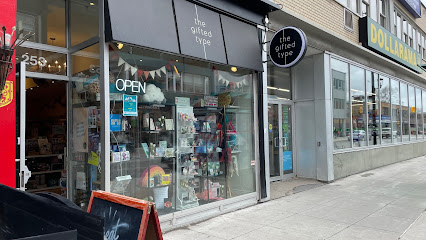
boogie + birdie
Explore Boogie + Birdie in Ottawa for unique gifts, local art, and unforgettable shopping experiences that capture the city's spirit.
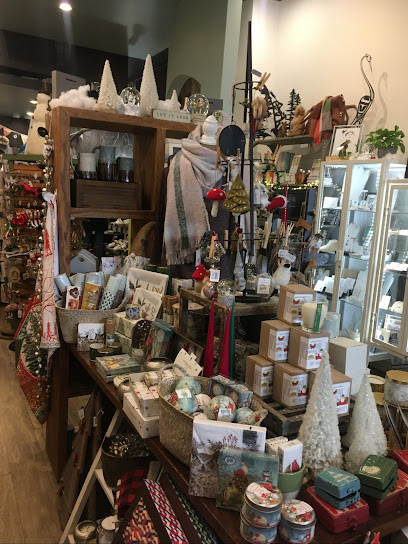
Laras
Explore Laras in Byward Market - a unique gift shop offering fashion accessories, boutique finds, and exotic incense from around the world.
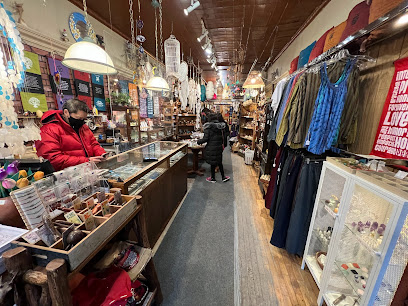
The Community Thrift Shop
Explore The Community Thrift Shop in Ottawa for unique clothing finds and support local charity initiatives.
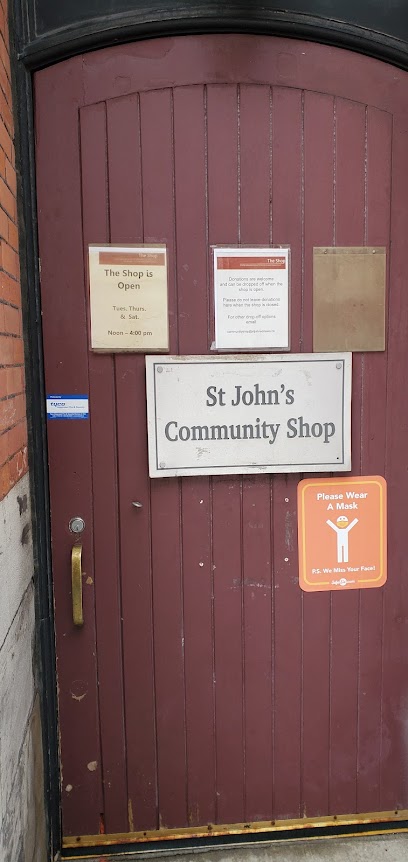
Cybertela
Explore Cybertela in Ottawa, a premier clothing store where style meets local culture, perfect for tourists seeking unique fashion pieces.
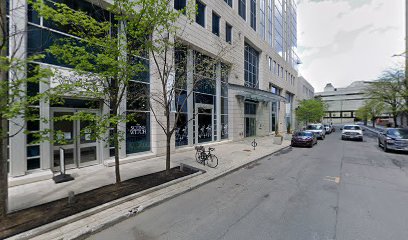
Around The Corner
Explore Around The Corner Gift Shop in Ottawa for unique souvenirs and locally crafted treasures that capture the essence of the city.
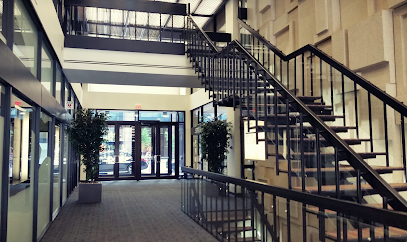
Pot and Pantry Home Essential & Decor
Explore Pot and Pantry Home Essential & Decor, where unique home goods meet local craftsmanship in the heart of Ottawa.
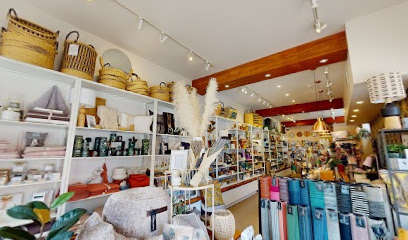
Gift Shop
Explore Ottawa's Gift Shop: Your one-stop destination for unique souvenirs, local crafts, and essential travel items in the heart of Byward Market.
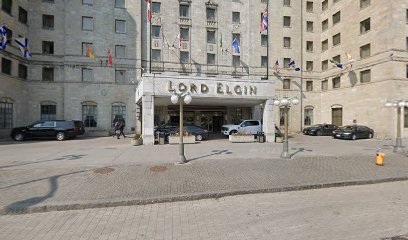
Thirteen Strings
Explore Thirteen Strings in Ottawa for quirky gifts, local crafts, and unique souvenirs that capture the spirit of the city.
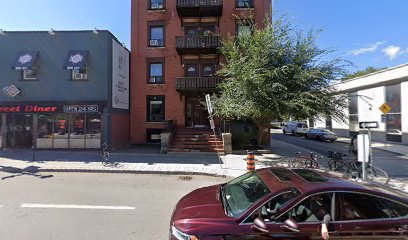
Essential bars & hidden hideouts
The Lieutenant's Pump
Discover the heart of Ottawa at The Lieutenant's Pump, a lively pub offering a rich selection of local brews and delicious comfort food.
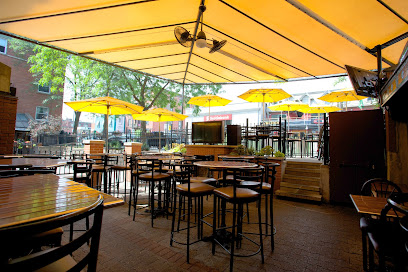
MacLaren's on Elgin
Discover MacLaren's on Elgin, Ottawa's premier bar and restaurant, offering a lively atmosphere, delicious pub fare, and great sports viewing.
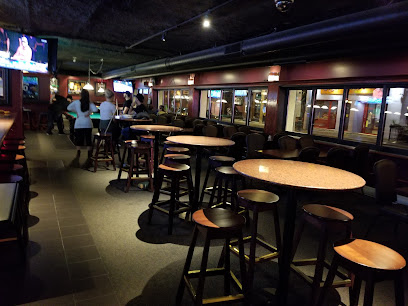
The Manx Pub
Experience cozy vibes, local flavors, and a vibrant atmosphere at The Manx Pub in Ottawa's Centretown.
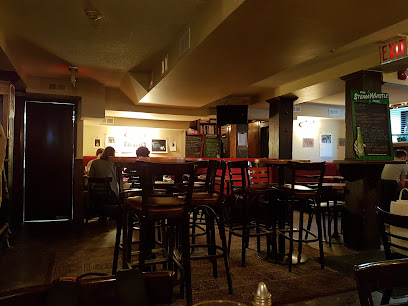
Sir John A Pub
Discover the heart of Ottawa's pub culture at Sir John A Pub, where great food and drinks meet a vibrant social scene.
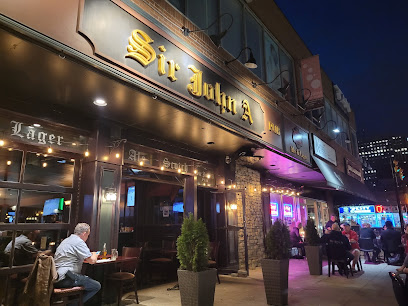
Deacon Brodies Pub
Experience authentic Scottish and English cuisine at Deacon Brodies Pub, a lively Ottawa favorite known for its great food and live music.
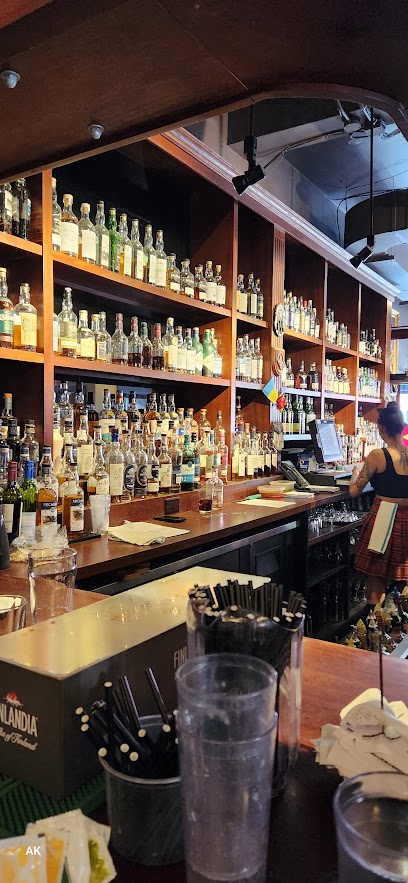
The Standard
Discover The Standard in Ottawa: a vibrant grill restaurant offering delicious food, a lively atmosphere, and exceptional service for every occasion.
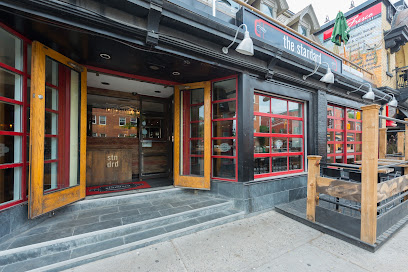
Charlotte
Discover the vibrant Charlotte Cocktail Bar in Ottawa, where innovative cocktails and a chic lounge ambiance await you for an unforgettable night out.
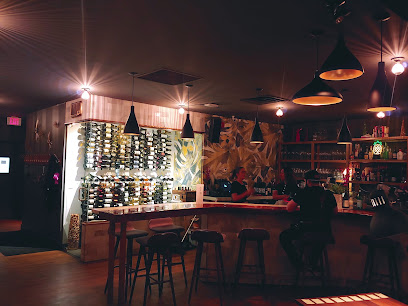
The Waverley Elgin
Discover The Waverley Elgin in Ottawa: A gastropub offering gourmet comfort food and an extensive drink selection in a lively atmosphere.
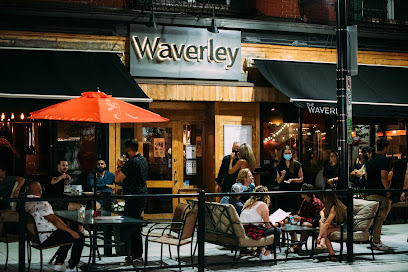
Manor Lounge
Discover Manor Lounge in Ottawa, where exceptional cuisine meets a vibrant atmosphere, perfect for dining and socializing.
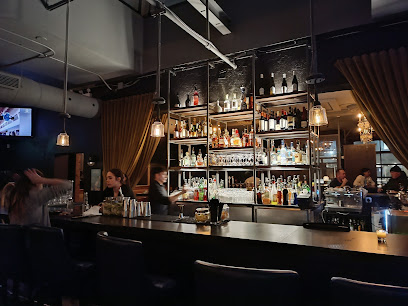
Happy Fish Elgin
Dive into Ottawa's nightlife at Happy Fish Elgin, where vibrant events and signature cocktails create unforgettable memories.
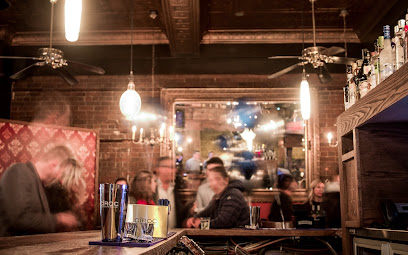
Local Phrases
-
- HelloEh up
[ay up] - GoodbyeSee ya
[see ya] - YesAye
[aye] - NoNaw
[naw] - Please/You're welcomePlease/You're welcome
[Please/You're welcome] - Thank youThanks
[thanks] - Excuse me/SorryPardon me
[pardon me] - How are you?How's it going?
[hows it going] - Fine. And you?Good. You?
[good you] - Do you speak English?Do you speak English?
[Do you speak English?] - I don't understandI dunno
[I dunno]
- HelloEh up
-
- I'd like to see the menu, pleaseCan I see the menu, please
[Can I see the menu, please] - I don't eat meatI don't eat meat
[I don't eat meat] - Cheers!Cheers!
[Cheers!] - I would like to pay, pleaseI'll pay, please
[I'll pay, please]
- I'd like to see the menu, pleaseCan I see the menu, please
-
- Help!Help!
[Help!] - Go away!Get lost!
[Get lost!] - Call the Police!Call the cops!
[Call the cops!] - Call a doctor!Get a doc!
[Get a doc!] - I'm lostI'm lost
[I'm lost] - I'm illI'm sick
[I'm sick]
- Help!Help!
-
- I'd like to buy...I wanna buy...
[I wanna buy...] - I'm just lookingJust looking
[Just looking] - How much is it?How much?
[How much?] - That's too expensiveToo pricey
[Too pricey] - Can you lower the price?Can you do a deal?
[Can you do a deal?]
- I'd like to buy...I wanna buy...
-
- What time is it?What's the time?
[What's the time?] - It's one o'clockIt's one
[It's one] - Half past (10)Half ten
[Half ten] - MorningMorning
[Morning] - AfternoonAfternoon
[Afternoon] - EveningEvening
[Evening] - YesterdayYesterday
[Yesterday] - TodayToday
[Today] - TomorrowTomorrow
[Tomorrow] - 1One
[One] - 2Two
[Two] - 3Three
[Three] - 4Four
[Four] - 5Five
[Five] - 6Six
[Six] - 7Seven
[Seven] - 8Eight
[Eight] - 9Nine
[Nine] - 10Ten
[Ten]
- What time is it?What's the time?
-
- Where's a/the...?Where's the...?
[Where's the...?] - What's the address?What's the address?
[What's the address?] - Can you show me (on the map)?Show me (on the map)
[Show me (on the map)] - When's the next (bus)?When's the next (bus)?
[When's the next (bus)?] - A ticket (to ....)A ticket (to ....)
[A ticket (to ....)]
- Where's a/the...?Where's the...?
History of Elgin Street
-
Elgin Street, named after Lord Elgin, the Governor General of the Province of Canada from 1847 to 1854, began to take shape in the mid-19th century. The street was initially a residential area for Ottawa's elite, featuring elegant Victorian homes and mansions. Its strategic location provided easy access to downtown and the Parliament Buildings, making it a desirable neighborhood for politicians and influential figures of the time.
-
By the early 1900s, Elgin Street had transformed into a cultural and commercial hub. The construction of notable buildings, such as the Ottawa Art Gallery and the historic City Hall, helped establish the area as a center for arts and culture. The street became known for its vibrant atmosphere, featuring theaters, galleries, and cafes that catered to both locals and visitors.
-
During World War II, Elgin Street played a significant role in the war effort. The area saw increased military activity and was a focal point for war-related gatherings and events. Many citizens rallied to support the troops, with various organizations setting up operations along the street to provide assistance and resources to soldiers and their families.
-
After the war, Elgin Street underwent significant urbanization and revitalization. The 1960s and 1970s brought modern developments, including the introduction of new businesses and the renovation of historic buildings. This period marked a renewed interest in preserving the architectural heritage of the area while accommodating the growing population and changing urban landscape.
-
Today, Elgin Street is celebrated for its diverse dining options, nightlife, and cultural events. The street is home to a mix of historic and contemporary establishments, including restaurants, bars, and shops. It continues to be a vibrant center for Ottawa's cultural scene, hosting festivals and community events that reflect the rich history and multicultural fabric of the city.
Elgin Street Essentials
-
Elgin Street is centrally located in Ottawa, making it easily accessible from various neighborhoods. If you're coming from the ByWard Market, you can take the OC Transpo bus routes 1 or 5, which will drop you off near Elgin Street. From the downtown area, it's a short 15-minute walk to Elgin Street. For those arriving from the Ottawa Macdonald-Cartier International Airport, taking a taxi or rideshare service is the most convenient option, as public transit options may require multiple transfers.
-
Elgin Street is pedestrian-friendly, allowing visitors to explore its shops, restaurants, and attractions on foot. Ottawa’s OC Transpo bus service operates several routes along Elgin Street, providing easy access to the rest of the city. Additionally, bike lanes along Elgin Street make cycling a viable option. For those who prefer to drive, street parking is available, but be mindful of signage indicating parking restrictions.
-
Elgin Street is generally safe for tourists, with a vibrant atmosphere and a strong police presence. However, it's always wise to stay vigilant, especially late at night. Certain areas in Ottawa, like parts of the Lowertown neighborhood, have higher crime rates, so it is advisable to avoid these areas after dark. Keep your belongings secure and be cautious of pickpockets in crowded settings.
-
In case of an emergency, dial 911 for police, fire, or medical assistance. There are several hospitals and urgent care clinics in Ottawa, with the Ottawa General Hospital being one of the closest major facilities. It is also advisable to have travel insurance that covers medical emergencies. For minor issues, local pharmacies are available throughout the area.
-
Fashion: Do wear comfortable yet stylish clothing suitable for walking. Don't wear overly casual attire like pajamas outside your accommodation. Religion: Do be respectful of religious sites, such as the nearby Christ Church Cathedral. Public Transport: Do pay your fare and respect seating for those in need. Don't eat or drink on public transport. Greetings: Do greet locals with a friendly smile; a handshake is common. Eating & Drinking: Do try local specialties at restaurants along Elgin Street. Don't waste food; it's considered disrespectful.
-
To experience Elgin Street like a local, try visiting the local cafes for the best coffee and pastries in the morning. Explore the hidden gems, such as small art galleries and boutique shops, which often offer unique items not found elsewhere. Join a local event or festival if your timing aligns, as these gatherings showcase the vibrant culture of the area. For a leisurely evening, stroll down the street to enjoy the lively nightlife and live music at various venues.
Trending Landmarks in Elgin Street
Nearby Cities to Elgin Street
-
Things To Do in Montreal
-
Things To Do in Lake Placid
-
Things To Do in Burlington
-
Things To Do in Middlebury
-
Things To Do in Stowe
-
Things To Do in Syracuse
-
Things To Do in Montpelier
-
Things To Do in Rochester
-
Things To Do in Rutland
-
Things To Do in Saratoga Springs
-
Things To Do in Killington
-
Things To Do in Halifax
-
Things To Do in Woodstock
-
Things To Do in Hanover
-
Things To Do in Ithaca











